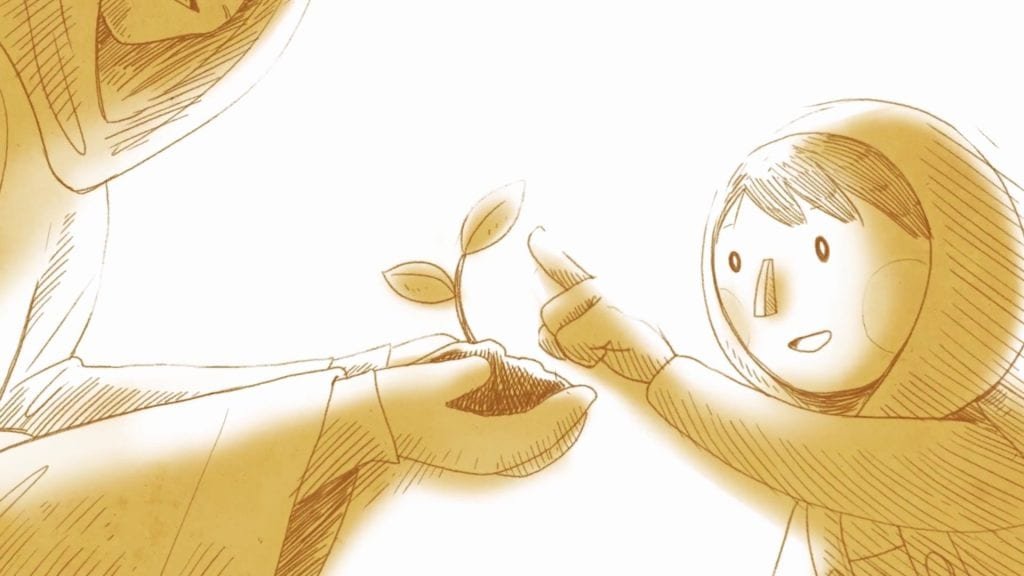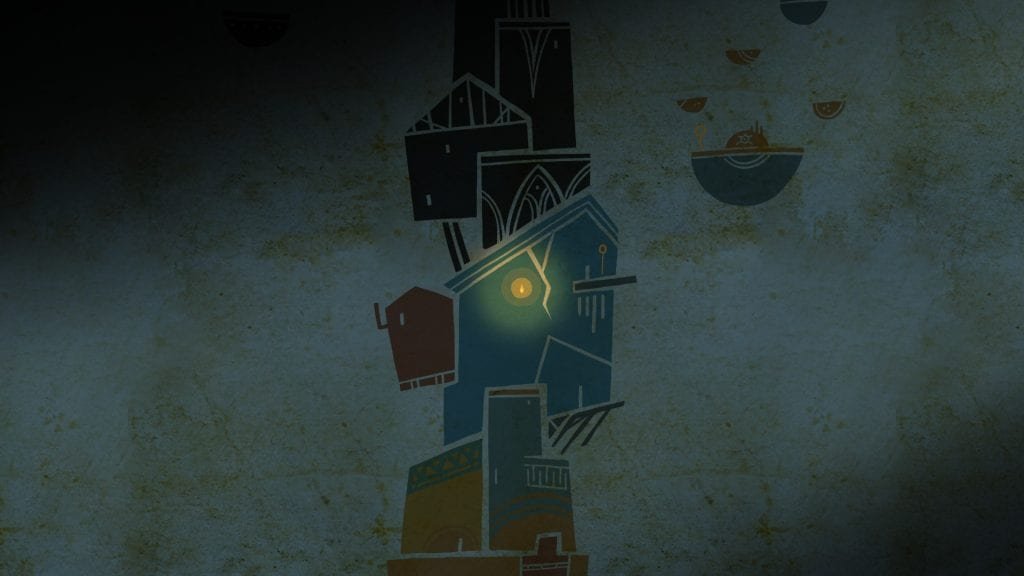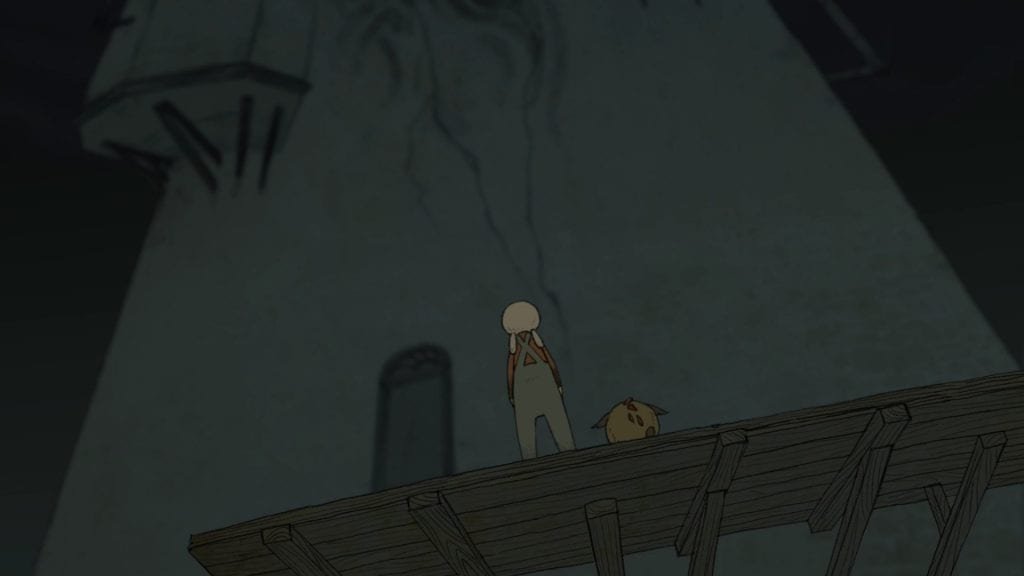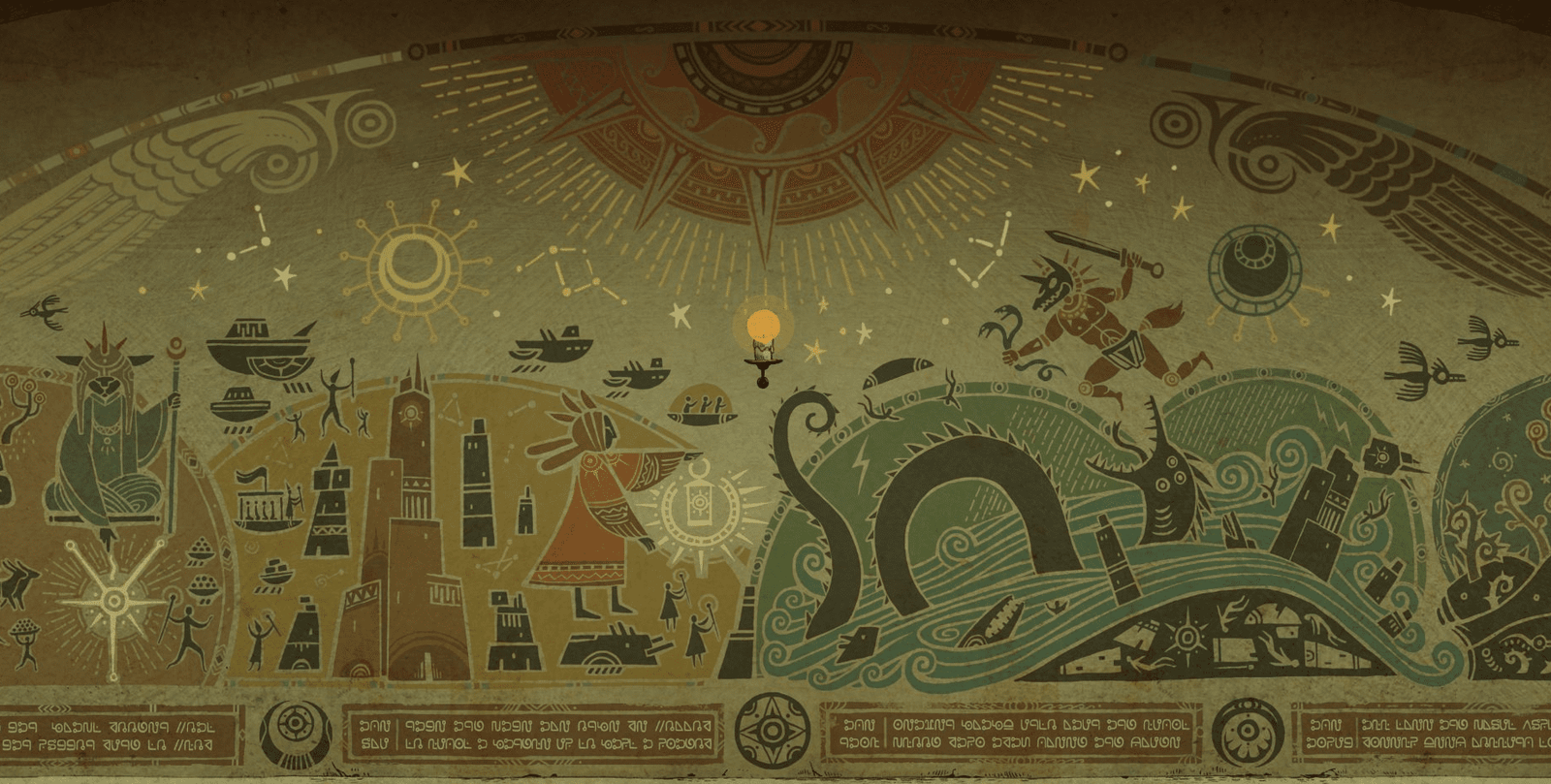Quick View
Release date: February 13, 2020
Price: $19.99
Rating: PEGI 12
Platform: PC via GoG and Steam, and Nintendo Switch
A code for this game was provided by Application Systems
What's It All About?
LUNA The Shadow Dust is a hand-animated 2D puzzle game, the first produced by the developers at Lantern Studio. It seeks to tell a story without words, spinning the poignant all-ages tale of a child and their companion as they climb a lone tower and unravel its mysteries – as well as their own.

The Good
To put a point on it: Luna‘s presentation had me enthralled from the very beginning.
I'm a huge fan of animated stories, to be sure, and Luna is a successful one in so many regards. Where a four-person core team could struggle to produce a full game with characters illustrated frame-by-frame, Lantern Studio has turned its limited resources into a marvelous strength. By focusing their scope on a few key characters, each shines with their own distinct charm, feeling like they've wandered right off the yellowed pages of a storybook.
The music really sells that “folk fairy tale” aesthetic; its soulful mix of strings, wind, and piano moves effortlessly from lullaby to cold ambiance to joyful warmth. If you're a fan of traditional music, you owe it to yourself to seek it out on a service like SoundCloud or Spotify. I must have listened to it three times over in as many days since finishing the game.
Luna also feels broadly appealing, almost to a mystifying degree. With its closest brush with text being in-universe hieroglyphics, the setting evokes a vague yet familiar “old world”. It feels like it could take place anywhere along the silk road as easily as a land beyond our own, giving Luna the air of a truly quintessential story. It's reflected through everything from the game's rustic architecture to its fantastical creatures and very identity-neutral main character. In fact, the only hint at so much as the protagonist's name comes through the titles of the game's soundtrack, making the deep sympathy I felt for them even more poignant.
Its “no words” hook leads Luna to double down on visual communication, making itself clear though colorblind-friendly imagery both in the game world in menus. This results in a game that, regardless of reading level, I'd believe that a reasonably-clever child could navigate. The puzzles rely on deep-rooted universal concepts like casting shadows, putting musical notes into sequence, and matching shapes – all conveyed through a style that keeps you deeply sunken into its world.

While that paints its challenges as overly simple, I assure you they only sound that way after the fact. Half of my time spent playing with Luna was in the purest expression of “puzzle” gameplay: approaching some new situation, not even knowing what levers there are to push and pull, and slowly discovering the very shape of the puzzle itself. It really puts you into the headspace of its child protagonist, attentively exploring the nooks and crannies of its towering setting. You very naturally discover your way forward, making progression feel player-driven and deeply satisfying, and crucially, Luna never feels like it's being needlessly patronizing.
On a neutral note, the game controls entirely with the mouse and (optionally) the spacebar, giving the impression that it would be a prime candidate for a port to tablets and Nintendo Switch. The developer has expressed interest in both, so if you prefer those platforms, keep your eyes peeled.
The Bad
Luna‘s greatest draw is, unfortunately, also going to be a big turn-off for a lot of people. While its art-forward nature is sure to be welcome to some, it's certainly not going to be to everyone's tastes. Those who value gameplay above everything else, or are disinterested in storytelling in their video games, may be less charmed.
It's also fairly short for its price point; according to Steam, I completed Luna in three and a half hours including a few brief breaks. Consumers concerned with the “dollars-to-hours” ratio won't love the math on Luna; if that's concerning to you, or it winds up on sale, bear in mind that those hours were all consecutive. Rarely do you stay up playing an un-engaging game until 1AM, but that's what I did here.
The Ugly
Regardless of how you feel about Luna‘s gorgeous presentation, the game can be too focused on being artful. It's a titch sluggish to execute, and while it may be charming to watch your character struggle to push a crate across a room at first, moving it the tenth time is a chore. It can force you to slow down and breathe in the atmosphere, sure. But after the dozenth shot at a puzzle, it's just an annoyance.
There's one puzzle in particular – one of the very last in the game – that operates across three screens. With little in the way of guidance, it takes a lot of frustrating, time-consuming trial-and-error. It killed the momentum of the game's final sequence, leaving a down note on an otherwise-strong experience.

Final Thoughts
For my bugbears with its ambling pace, and how it won't appeal to everyone, Luna had me thoroughly entranced. It leaves a powerful impression deserving of the artistic commendations it's earned – and is sure to attract in the future. Moreover, the persistent absence of language creates a focus on atmosphere that lets you truly fall into its setting and dig into its puzzle gameplay. This game comes on a strong recommendation that I'll definitely be giving to certain people in the near future.


[…] for fans of: Classic LucasArts adventures, hand-crafted animation, and works brimming with unironic […]